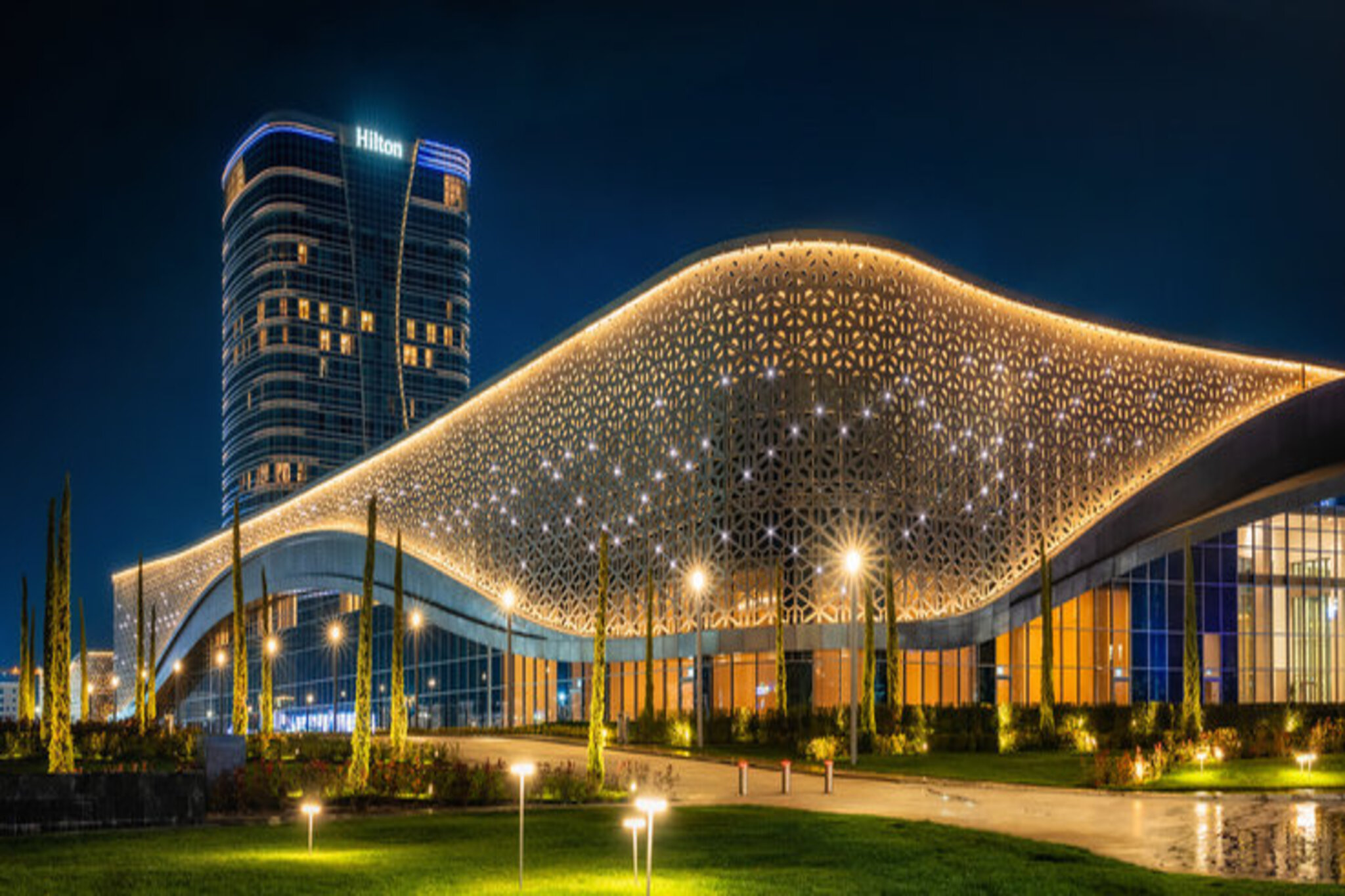




Tashkent, the capital city of Uzbekistan, is a vibrant metropolis where a rich tapestry of history, culture, and modernity unfolds. With roots dating back to ancient times, Tashkent has been a prominent hub along the Silk Road, witnessing the ebb and flow of diverse civilizations. The city boasts a mix of architectural styles, from the historic Hazrati Imam complex with its ancient manuscripts to the modern structures that define its evolving skyline. Tashkent's wide boulevards, green parks, and bustling bazaars contribute to its dynamic atmosphere, inviting visitors to explore the juxtaposition of tradition and progress. As a cultural and economic center, Tashkent encapsulates the spirit of Uzbekistan, offering a glimpse into the nation's past and present.
History: Tashkent, the capital of Uzbekistan, bears witness to a storied history that unfolds amidst the ancient Silk Road. From its early roots as a trade center in the Chach state to the various conquerors and empires that left their mark, including the Persians, Greeks, and Arabs, Tashkent has evolved into a vibrant cultural hub. The city's historical narrative encompasses the era of the Silk Road, where it thrived as a pivotal point for trade and cultural exchange. The enduring legacy of Tashkent is reflected in its well-preserved historic sites, such as the Kukeldash Madrasah and the Barak-Khan Madrasah, which stand as a testament to the city's rich past.
Geography: Situated in the heart of Uzbekistan, Tashkent's geography is defined by its position on the historically significant Silk Road. The city is surrounded by the vast landscapes of Central Asia, with the Tian Shan mountain range to the south and the Syr Darya River flowing nearby. Tashkent's strategic location has contributed to its role as a crossroads for cultures and civilizations throughout the centuries.
Tourism: Tashkent invites travelers to explore its cultural treasures and modern developments. The Old City, with its narrow streets and ancient monuments, contrasts with the contemporary architecture of Independence Square and the Tashkent Tower. The Chorsu Bazaar, a bustling market since ancient times, provides a sensory journey through the city's vibrant traditions and flavors. Tashkent's warm hospitality and a blend of historical and modern attractions make it a captivating destination for cultural exploration.
Cultural Hub: As a cultural hub, Tashkent resonates with the echoes of ancient scholars, poets, and artisans. The city's museums, theaters, and cultural events, such as the Tashkent International Film Forum, contribute to the preservation and promotion of Uzbekistan's rich heritage. Tashkent's commitment to the arts is evident in its numerous galleries and performance spaces, making it a dynamic center for cultural expression.
Climate: Tashkent experiences a continental climate with hot summers and cold winters. The diverse seasons add a dynamic touch to the city's landscapes, creating different atmospheres for exploration. Tashkent's inviting climate enhances the allure of its outdoor attractions, encouraging visitors to discover the beauty of its parks, gardens, and historical sites throughout the year.
Economic Landscape: Tashkent's economic landscape reflects its position as the economic and financial center of Uzbekistan. The city is a hub for trade, industry, and services, contributing significantly to the country's economic growth. Modern developments, including business districts and international collaborations, showcase Tashkent's role as a key player in Uzbekistan's economic landscape.
Landmarks: Tashkent's landmarks tell the tale of its history and architectural brilliance. From the Khast-Imam Square, featuring the Barak-Khan Madrasah and the Tillya Sheikh Mosque, to the modern Tashkent Tower, each landmark contributes to the city's cultural tapestry. These sites invite visitors to delve into the captivating narrative of Tashkent, exploring the treasures it holds and the dynamic spirit that defines this ancient city in the heart of Central Asia.